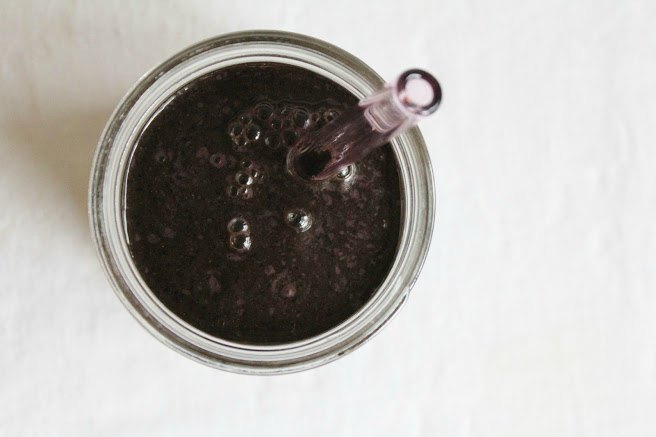
Nuts.
Can we go nuts on nuts?
They don’t exactly get a great reputation if you want to lose weight.
And I must admit that some of that is my own doing.
Inspired by the 80/10/10 Diet, I wrote a few articles explaining why you should limit your nut intake.
…But I might have been wrong.
True, at over a hundred calories per ounce of nuts, you may think nuts can contribute to weight gain.
But what if nuts can boost your metabolism and make you more naturally satiated?
Just ask our interviewee, Dr. Michael Greger, a renowned physician, Founder member of the American College of Lifestyle Medicine, and Founder of Nutritionfacts.org, who’s back with us again today.
Dr. Greger reveals exactly why nuts may not cause the expected weight gain, and yes he’s also going to address why we need more fruit in our diet, and why we don’t need saturated fat.
Do Nuts Help Us Burn More Calories?
Q: You mentioned that nuts and fruit do not lead to the expected weight gain in your studies. Can you elaborate on that? So, does this mean we can eat as much nuts and fruit as we want?
Dr. Michael Greger: If you look at the calories in nuts, you would expect that if you started eating a handful of nut a day, you know you’ll gain a couple of pounds over a few months because nuts are really caloric-dense.
However, this does not happen in most cases. And the question is: Why do people add nuts, in some cases handful of nuts, to their daily diet, and still not gain weight?
And in some cases, they may even lose weight. And the reasons, as I go through all the fascinating theories, come out to be a number of things. The most important reason, I believe, is that nuts are so satiating that you naturally eat less other foods during the day.
So, when I say just eat two handfuls of walnuts a day, I don’t care what else you do. Just by eating the two handfuls of walnuts throughout the day your body naturally realizes how much calories it’s getting.
This just cuts down on other foods throughout the day. This also boosts your metabolism.
Walnuts may boost your metabolism by 10%.
This means that we burn more calories when we are sleeping, after having eaten walnuts.
There are numerous other facts suggesting that if you’re eating whole nuts you actually, a lot of fat actually just passes right through you, unless you’re chewing really good or eating nut butter.
There are pieces of nuts that just don’t get digested, and so you are actually not accounting for those calories.
So, there is a whole bunch of things that come together to suggest that one should not avoid nuts. In fact the nuts are really healthy to protect against cardiovascular diseases. I encourage people to eat a handful of nuts and seeds every day.
Can you eat as many as you want? I don’t know; it depends how many you want.
Would I eat pounds of nuts? No, because this would crowd out all sorts of other healthy foods.
We need to eat, and we need to center our diet around fruits, vegetables, whole grains, beans, nuts and seeds, mushrooms, herbs, spices. These are the healthiest foods. We should eat as many as we can, and less of everything else.

Why Not Eating Enough Fruit Can Cause Disease
Q: And the same goes with fruits, all right?
Dr. Michael Greger:
The more fruit the better.
For instance, there’s this Global Burden of Disease study, funded by Bill Gates and The World Bank. This was the largest study ever in the history of humankind on risk factors for disease. And it’s different in every country.
In United States, the number one killer is not eating enough fruit, according to them. And I think number two was smoking, right not smoking.
So, it is more important to eat fruits than just to not smoke.
That was crazy, because they basically went through each of the diseases, and found out which proportion could be prevented by eating more fruits, and you add them all up you are like “Wow. Eat fruit.” So, I have a video coming out on that, in a while. It’s queued up.

Do We Need Saturated Fat?
Q: There is a leading website that talked about how our body requires saturated fats from animal and plant sources, and that we should limit fruit and grain consumption. What’s your take on that?
Dr. Michael Greger: Well, if it’s on a website it must be true. No!
So, the person doesn’t know basic biology. I mean so there is no requirement at all for saturated fats. None at all; zero.
You could be on a zero saturated fat diet. Not only would you thrive, you’d actually do better, because our body can make saturate fats.
Our body makes all the saturated fat that we need. Our body makes all the cholesterol we need. So, we have zero daily requirement of cholesterol, zero requirement for saturated fat.
And so when someone makes a statement like that you have to question, that just goes against basic biology. How can you listen to everything else they say?
Maybe they are just wrong on one thing and right about everything else, but it’s just like… and don’t eat fruits, don’t eat whole grains. What?
Whole grain consumption is associated with decreased hypertension, decreased diabetes rates. Fruit protects against stroke.
If you’re suicidal maybe, then you want to eat a lot of saturated fat and all. This really doesn’t make any sense to me.
This brings us to the end of part 3. In the next parts, we’ll be addressing:
- Controversial health foods (Is soy good for you? What about spirulina?)
- More on supplements (What are the must-haves?)
Stay tuned for updates on the next part here.
About Dr. Michael Greger: Dr. Michael Greger is an internationally renowned physician specialising in clinical nutrition, author, and globally recognised professional speaker on on various public health issues. Dr. Greger’s work can be found at NutrionFacts.org
GET INSPIRED WITH our latest newsletter
You don’t need fixing—you’re already radiant. Let’s ditch the shame and unlock your power, together.

